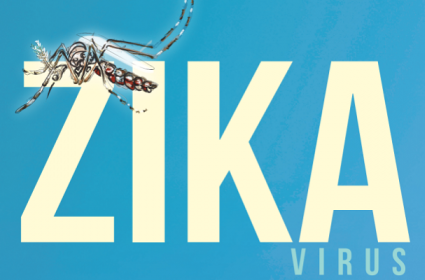Study Finds Zika Virus Could Get Dangerous With a Small Mutation

The NS2B I39V/I39T mutation is the name of the mutation. It improves the capacity of the Zika virus to multiply in both mice and mosquitos. In human cells, the Zika variant demonstrated enhanced replication.
New Delhi: A new study has discovered that a small mutation in the Zika virus can make it much more harmful. It will become more infectious as a result of the mutation, and it may be able to overcome pre-existing immunity.
The findings were recently published in the journal Cell Reports in research.
What Is the Zika Virus?
The Zika virus is caused by a virus that is spread by Aedes mosquitos. Fever, rash, conjunctivitis, muscle and joint discomfort, and headache are among the symptoms of Zika virus infection.
The virus was initially discovered in monkeys in Uganda in 1947 and then in humans in Uganda and the United Republic of Tanzania in 1952.
According to the World Health Organization (WHO), Zika virus infection during pregnancy can result in microcephaly, a disorder in which a baby's head is significantly smaller than expected. Other congenital deformities may also be present when the babies are born.
Also Read: Being Fit Vs Being Healthy: Is There A Difference?
The Zika virus and the dengue virus coexist in many countries. Both the Zika and dengue viruses are flaviviruses spread by mosquitos. These viruses are positive-strand RNA viruses that can infect humans via a variety of arthropod vectors. Flaviviruses are known to cause widespread morbidity (disease-related repercussions and problems other than death) and mortality all over the world.
Zika and dengue viruses have a lot in common.
Zika and dengue viruses have numerous molecular similarities, and the immune response triggered by earlier dengue infection can protect against Zika.
According to a statement released by LJI, Sujan Shresta, a professor at the La Jolla Institute for Immunology (LJI) in California, who co-led the study with Professor Pei-Yong Shi of the University of Texas Medical Branch, said the globe should monitor the emergence of this Zika virus type.
She also stated that in locations where Zika is common, the vast majority of people have already been exposed to the dengue virus. They have cross-reacting T cells and antibodies.
The fact that both viruses are quick to mutate is a negative element. Dengue and Zika are RNA viruses, which means they may modify their genomes, according to Shrestha.
Because there are so many mosquitoes and human hosts, the viruses are continually travelling back and forth and changing.
What Methods Did the Team Use to Research Zika's Evolution?
To examine Zika's rapid evolution, the researchers generated infection cycles that swapped back and forth between mosquito cells and mice. As a result, the researchers were able to learn more about how the Zika virus evolves spontaneously as it encounters additional hosts.
According to the study, the Zika virus finds it quite easy to acquire a single amino acid mutation that allows it to create more copies of itself. As a result, infections are more likely to occur.
What Causes The Zika Variant To Be Harmful?
The NS2B I39V/I39T mutation is the name of the mutation. It improves the capacity of the Zika virus to multiply in both mice and mosquitos. According to the study, the Zika variant had enhanced replication in human cells.
According to Jose Angel Regla-Nava, the study's first author, this single mutation is enough to boost Zika virus pathogenicity. He explained that a high replication rate in either a mosquito or a human host could boost viral transmission or toxicity and lead to an outbreak, he explained.
Shrestha went on to say that the Zika variation discovered by the team had progressed to the point where earlier dengue infection no longer provided cross-protective immunity in mice. She claims that if the variation becomes common in humans, they will face the same problems.
What Can Humans Do Prepare For This Variant?
Scientists are working to develop Zika vaccines and therapies that are tailored to the deadly mutation, as well as figure out how the mutation makes Zika proliferate more efficiently.
The researchers want to know when the mutation makes a difference in the viral life cycle.



















